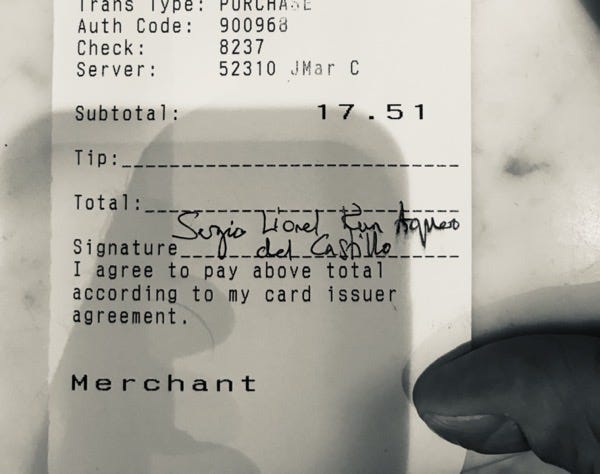Brazilian stripe adventure
The news that the magnetic stripe is going to start disappearing from our credit cards, and only a decade or so after I began questioning the need for it to be on any of my cards at all, brings so many memories of my life in payments to the fore that there has been a tear in my eye all morning.
For many years I had a lot of fun complaining about America's attachment to the magnetic stripe and chronicled the transition through to chip cards, contactless and mobile phones. That transition still has some way to go, incidentally, because unlike most of the world where, to all intents and purposes, all in person card payments are made using chips, as of last year only around three quarters of US transactions were executed in this 21st-century mode.
[bctt tweet="For many years I had a lot of fun complaining about America's attachment to the magnetic stripe *wipes away tear*" username=""]
I'll find a few key chip and stripe stories to post out on social media over the next day or two just in case any chroniclers of the payments industry are collecting anecdotes, but for now I'll just focus on one true story that was brought to mind by a comment from my old friend Charles Arthur who was asking about the use of stripe and chip cards in developing countries.
A few years ago, and already a few years after I had been enjoying the fact that Kazakhstan was migrating to chip and pin when Kansas wasn't, I had to go to São Paulo for a few days to work with some of the Brazilian banks. I can’t remember why, exactly ,but I think it was something to do with mobile payments. Anyway, when it came time for me to leave I found a taxi and set off for the airport.
While pottering along the freeway I remembered that I didn't have any cash with me, because I never do, and so I wanted to know if the taxi could take payment by card. I took out my wallet and gestured at a credit card and looked quizzically at the driver. The driver signalled and turned off of the freeway onto some side roads. After a few minutes of driving through a retail area, which is mainly shoe shops as I recall, we turned off again onto some smaller roads and went into a distinctly shady part of town.
At this point I began to panic slightly.
Cursing my stupidity for waving around a wallet full of cards and naturally assuming that I was about to be robbed, I began to calmly assemble my tactics. I figured that so long as I could retain my passport then things would be okay. After all, credit cards could be replaced by the banks (as indeed they often were at though at that time) and the computer belonged to the company not me, so whatever. I surreptitiously removed my passport from my jacket pocket and hoping that the driver would not notice, slid it down my leg and into one of my socks where I hoped it would remain throughout my impending ordeal.
The car pulled up at a shack that looked for all the world like a bandit headquarters from Mad Max and the driver shouted something to the unseen denizens. I thought for a moment about trying to make a run for it but realised I wouldn't really get very far and would likely only inflame the situation, so I stayed put to await the inevitable. Sure enough, a young man dressed in jeans and some sort of football shirt came out from behind the shack and jogged towards the car with something metallic in his hand.
He reached the car and pulled open the door and thrust toward me, glinting in the sunlight… a chip and pin terminal.
I put the card in, punched in my pin, waited for my receipt and continued to the airport.
I'm reasonably well travelled and in the last few years I've been to countries ranging from El Salvador to the Ivory Coast and from Bulgaria to Krzygstan and I can honestly say that I have no memory of using a magnetic stripe terminal anywhere except in the USA. I'm pretty sure that the last time I ever used a card to pay with the magnetic stripe ever was in a coffee shop in a hotel in Las Vegas. I remember this because I had to go back to my room and get my passport so that they could write the passport number on the receipt.
Ah, those were the days.
Are you looking for:
A speaker/moderator for your online or in person event?
Written content or contribution for your publication?
A trusted advisor for your company’s board?
Some comment on the latest digital financial services news/media?





